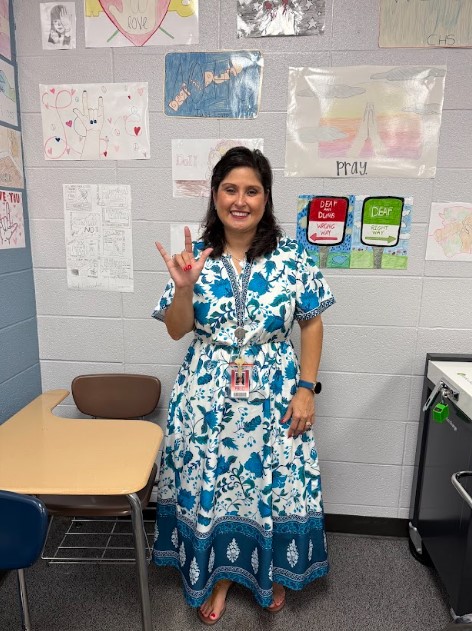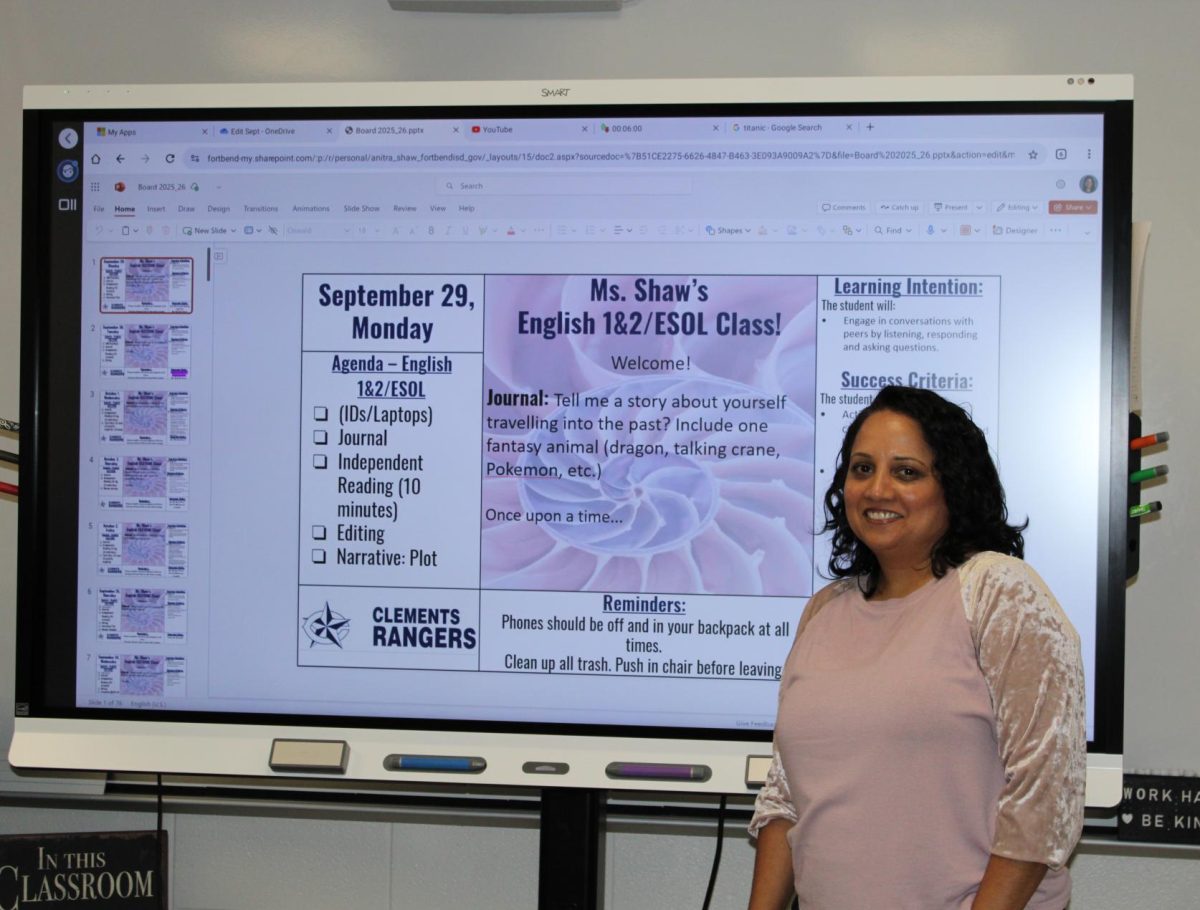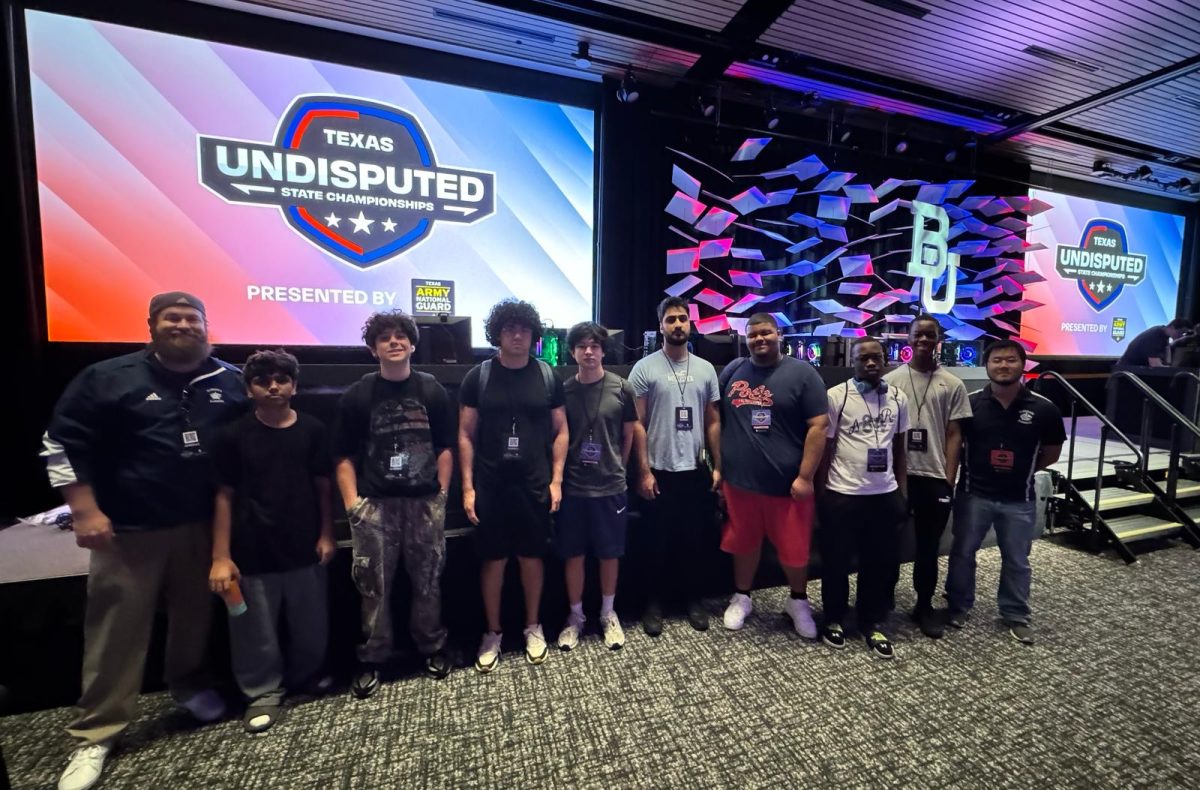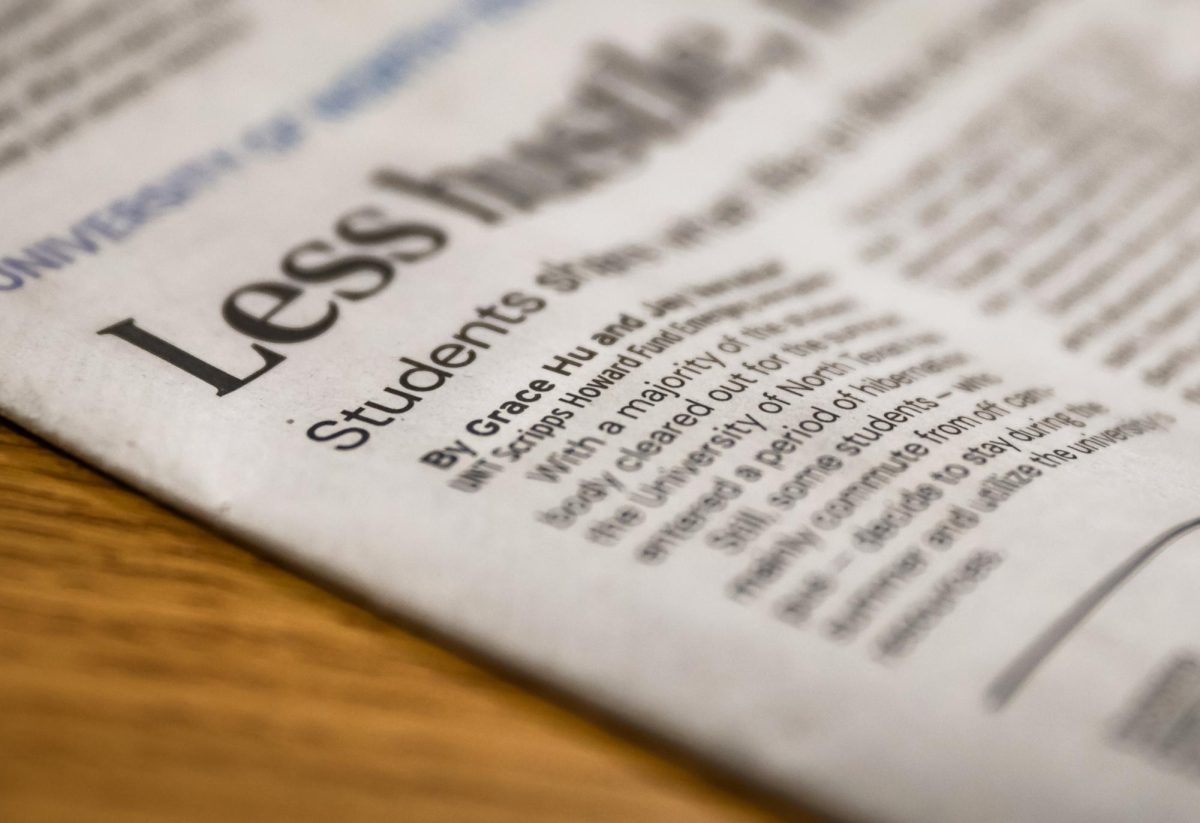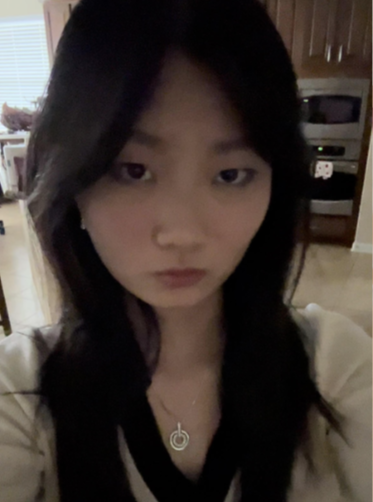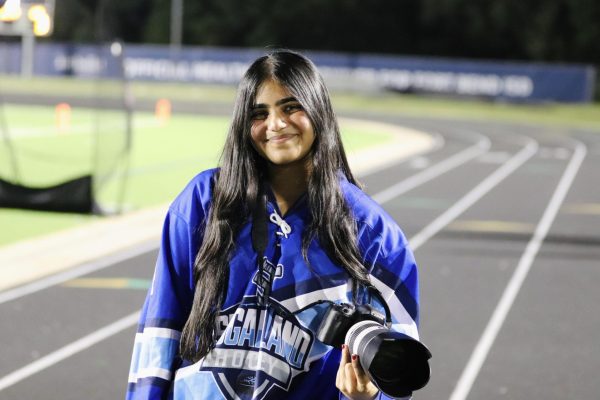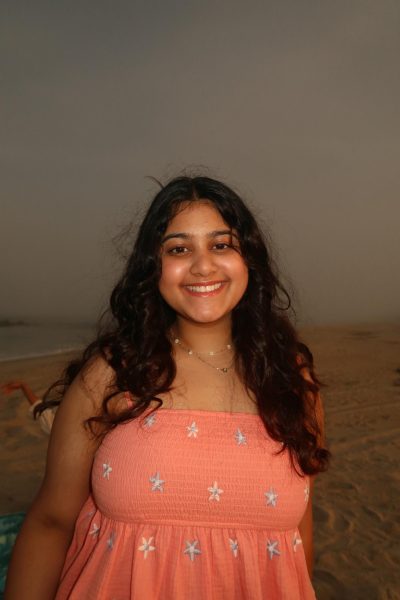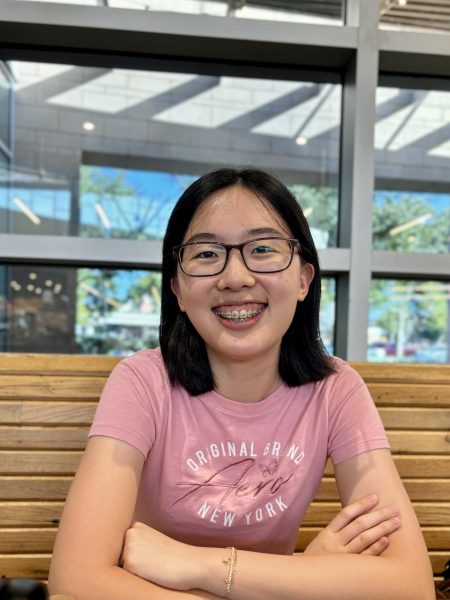The driving force behind more than 70 published articles, five Best of SNO awards, and most recently, recipient of a $1,000 scholarship from the Texas Association of Journalism Educators, only awarded to six student journalists across the state, senior Karen Wei has big dreams for the future — she finds inspiration in public policy and aims to change the world for the better by giving a voice to everyone.
“The ‘why’ that I’ve discovered through journalism is this idea that the RoundUp and the written word in general is something that can give other people a voice,” Wei said. “There are some people who don’t get one, like cafeteria workers, like custodians. Something I found I’m really passionate about, and I’ve learned to stick with and not feel any pressure to conform, is highlighting those people who normally wouldn’t be recognized.”
Throughout her journey as a reporter, copy editor, and now editor-in-chief for the RoundUp, a valuable lesson Wei has learned is the importance of having a unique niche.
“When it comes to storytelling and deciding what story I want to cover, there are so many topics that you can pursue,” Wei said. “Something I have learned is that it is best to find out your ‘why.’ What is the purpose behind your own journalism? And then pick people to interview based on that.”
While others may use chocolates or video games as a reward system, Wei uses writing — an odd but endearing ritual.
“Some people don’t think of writing as fun, but for me, it is really, really fun,” Wei said. “How I structure it is, I’ll study for a couple of hours and in between studying, as a reward, I’ll do journalism. On the weekends, or when I’m riding the bus or car with nothing else to do, I’ll check up on my latest story, see how it’s going, and write a few lines.”
Like one might hoard riches, Wei stockpiles her many story ideas in a running Google Document. Sometimes, she faces a hitch on the writing road, more commonly known as writer’s block.
“It’s a strange feeling and really scary too,” Wei said. “How I persevere is, a lot of times, I look for inspiration through other sources, like ‘What are professional journalists writing?’ I’ll check the news.”
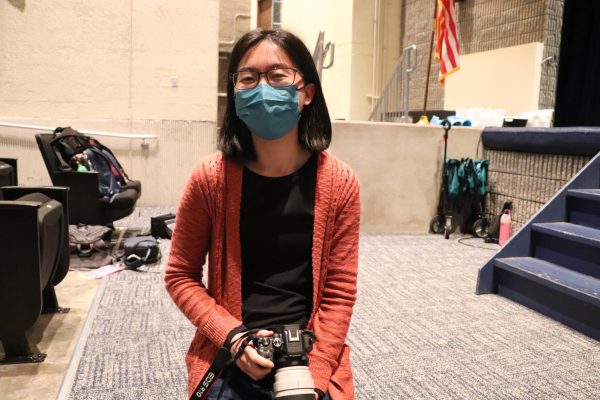
Wei’s dedication to studying compelling journalistic pieces contributed to the development of her writing, and most notably helped her win several Best of SNO awards.
“I’ve won it five times now, and I was the first person as copy editor to discover that it was offered for our newspaper and to start entering my pieces in there,” Wei said. “It did take ten pieces before one got accepted — a piece on political disillusionment, called “To Vote or Not To Vote.” When I saw it, I was jumping up and down with excitement, because it took so long before I actually got that recognition.”
Some other noteworthy pieces of Wei’s that won Best of SNO include “Soaring, Trendsetting, Envisioning, Motivating: S.T.E.M. Women,” “That Time of Month,” and “Soap to Hope.” Prior to all of these achievements though, she won the first place in the John F. Tinker Foundation National Essay Contest at the beginning of her sophomore year.
“It was their first year running it, and the prompt was to write an essay about the relationship between freedom and peace,” Wei said. “I thought that was really interesting, because obviously, I’ve always been interested in global issues, especially ones that are focused on solutions. I got to do a Zoom call with John F. Tinker, the namesake of the Tinker v. Des Moines Independent School District case on symbolic speech.”
This moment was also especially memorable for senior Juhi Godbole, who has known Wei since middle school and now works alongside Wei as Assistant Editor.
“I was taking photographs of Karen when she was receiving her award and when she was talking to Mr. Tinker,” Godbole said. “I was so happy to see her get recognized for something she’s so good at. She’s a fantastic writer. I just felt so proud of Karen because she’s getting everything that she deserves and more.”
Originally, the two met over online school, and Godbole has described Wei as “a ray of sunshine” ever since. Years later, they work hand-in-hand as the editors of the RoundUp. Godbole describes working with Wei as a “breath of fresh air” and the most stress-free experience she’s ever taken part in.
“When we got chosen for the editor role together, we were both really excited to continue our little duo,” Godbole said. “Working with Karen just makes your day better. It makes everything you do better. It reinforces the purpose of why you’re doing what you’re doing.”
Recognizing that parallel passion in Wei has furthered Godbole’s love for journalism. In their freshman year, they were the only two attending the biweekly Quill and Scroll meetings apart from the club’s officers, although neither of them were discouraged by the slight turnout.
“Karen really gave me that confidence and that push,” Godbole said. “Because there was someone else with that same rigor, and seeing the extent to which she does writing makes me want to do the same thing with photography.”
Wei constantly amazes Godbole with her assembly line of ideas, seemingly infinite — from the new newsletter, the Ranger Report, to weekly lessons each with unique activities that keeps the students constantly engaged.
“Over the summer, we came up with a bunch of ideas that we wanted to implement throughout the RoundUp, and she implemented almost every single one of them,” Godbole said. “That’s so special to me, because we’ve had so many ideas bubbling within us.”
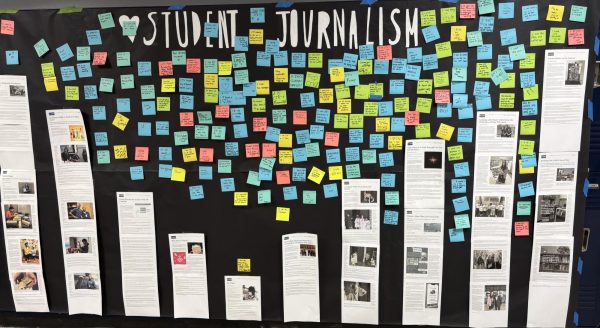
Another admirable trait of Wei, according to Godbole, is that she is a very driven writer — whenever she has a story idea, she executes it.
“She doesn’t put the story idea on the back burner,” Godbole said. “She doesn’t throw it to the side. When she has a goal, she will accomplish that goal no matter what it takes.”
One such goal has been to improve the RoundUp. Godbole compares the newspaper to Wei’s child, in the sense that Wei has taken the efforts to make it blossom into a capable adult.
“She’s given people their own home at the RoundUp and their own safe space,” Godbole said. “Even throughout the newspaper class, she’s done so many activities, so many lesson plans, and it takes a lot of work. It takes hard work to curate those, especially knowing the fact that you have to grab people’s attention for so long.”
With Wei as Editor, the newspaper has reached a fuller, more diverse community, encompassing the views and perspectives of additional young writers and readers.
“When you’re on a newspaper staff, it’s really hard to get people interested because of the way the world is changing,” Godbole said. “Karen has really worked with our newspaper staff to find what they’re interested in writing about and has given them that creative freedom to continue doing what they want. This year I’ve seen Karen with her most character development in the sense that just stepping into that position as a leader, and that amazed me. Working with her has definitely been an experience I will never forget.”
Journalism teacher David Clayton, who has worked with and taught Wei from her first day at Clements to what will be her last, said the word that best describes her is “true,” after cycling through a dozen others.
“I’ve known Karen since she was a freshman in my Journalism 1 class,” Clayton said. “I can remember exactly where she sat. She sat in the front row. She stood out immediately, just how attentive and focused she was on the instruction. You could tell she was very interested in journalism. She always asked insightful questions, although you had to strain to hear her.”
It was in part due to the COVID masks that were in place back then, though Wei always had a very soft voice. Afterwards, Clayton said he watched in fascination as Wei got a little louder and a bit more assertive year by year, although he always suspected she had it in her.
“It’s been wonderful to see her grow as a writer and more importantly as a leader,” Clayton said. “She always picks up on interesting topics, and she’s been my most productive writer as far as creating stories.”
Clayton also finds Wei’s ability to unearth compelling stories on campus particularly notable, especially when it comes to highlighting the underrepresented voices, which remain a driving force for Wei’s choice to pursue public policy. He recalls Wei previously describing the paper as her mad science lab.
“Every day, I try to tell students this, ‘You have such a short time in high school, especially when you’re in these programs, and you’re never going to be as protected as you are now,’” Clayton said. “You have this opportunity to do what you want, to experiment in a safe place, and Karen’s just run with that.”
Since taking over the newspaper, Clayton said that not only has Wei has made his life much easier, but she’s also inspired him in her own right while setting her mark for future editors.
“She’s made the last four years go by really well,” Clayton said. “I’ve always enjoyed classes with Karen. You can tell when somebody really loves what they do and when they’re really interested in it. When you have that type of student in your class, it inspires you to try and do the best you can for them, because you know what they’re trying to do. I’ve been fortunate to have students that inspire me, that make me think, ‘Oh, we’re going to be okay, next generation’s all right.’”
On the smaller scale, Wei is a people’s person: always making sure she’s patient and giving students her full attention, even if she’s in the middle of a task.

“She’s genuinely interested in what they have to say,” Clayton said. “When she’s talking to someone, you can see the interest, and she never acts too busy for something, even though she’s got a million things to do.”
Clayton portrays Wei as an incredibly dependable and responsible individual, someone who can always be counted on to follow through her commitments.
“I’ve never heard her complain,” Clayton said. “Every day she comes in consistent, probably more prepared than I am. I have my ups and downs, every teacher does, and she’s very even. Nothing seems to ruffle her feathers. She handles things so well. If you entrust her to do something, she’s going to do it and do it well. Never have to worry about anything with her.”
Clayton additionally said that if anything, students should learn from Wei’s overwhelming positivity. This attitude and dedication enables her to find solutions to many complex problems.
“PBS used to have this program for kids called ‘Mr. Rogers Neighborhood’,” Clayton said. “It was huge when I was growing up. He talked about whenever there was a disaster or something awful happening, look for the helpers. I look at Karen and I know she would be one of the people helping.”
Junior Grace Hu said that this positive attitude in Wei is something that pulled Hu towards journalism.
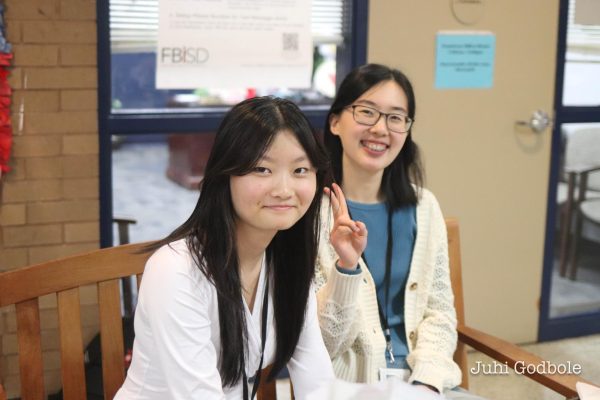
“Mr. Clayton brought me in to observe the class one day, and she really caught my eye,” Hu said. “She was so outgoing, and there was such a positive energy around her. So I ended up joining it and this year she’s been more of a mentor figure, because she’s training me to take over as editor-in-chief next year.”
This mentor and mentee relationship between Hu and Wei has helped Hu grow as both a reporter and a person.
“I don’t think I would have liked journalism or wanted to explore it as much as I do now if I had not met her,” Hu said. “Other than that, I think she makes me more conscious of the effect I’m having out in the world because she’s so conscious of that. I think she balances me out well, because I get very agitated sometimes and she’s like a very patient person, a very calm person.”
One of the highlights of Hu’s year was co-writing with Wei. Part of a two-piece feature series covering underrepresented staff, “Preparing The Food, Serving Up Smiles, Brightening Our Days,” also won the Best of SNO award.
“The first time we co-wrote the story, I kind of saw her drive, her work ethic, which wasn’t as clear to me before,” Hu said. “I’ve never seen someone work that hard for a story, and I saw how she really connected with the custodians. So that was like my first real peek into what journalism can actually do. I also saw how happy the custodians were to be covered, and she was one of the big reasons for that.”
Hu also shared that Wei has inspired her immensely, especially when it comes to future plans for the RoundUp.
“I don’t think I would have been editor-in-chief without seeing how hard she works as editor-in-chief,” Hu said. “She’s done so many good things for the RoundUp, and she really sets the precedent for me to achieve next year as editor-in-chief. I hope I’ll be able to live up to her.”
While sharing her future aspirations for the new set of editors, Wei expressed her confidence in the new team and that they will accomplish great things together.
“My hopes and dreams would just be to continue what I already started, but also, make it your own,” Wei said. “Join the NSPA and try those new awards and try for new coverage and collaborations. I would encourage you to not be scared to try new things.”
While recounting the interviews she has conducted so far, Wei shared that her most memorable interview has been with U.S. History and Genocide teacher Tara McMartin for her “Alone, But Together” story.
“Recently, I wrote a story on the loneliness epidemic, and in the story, I asked Ms. Mac about her daughter’s passing away,” Wei said. “It was a really difficult topic for her, but I felt really honored, because she opened up to me. She was willing to talk about it with me and trust that I would do her story justice in my writing.”
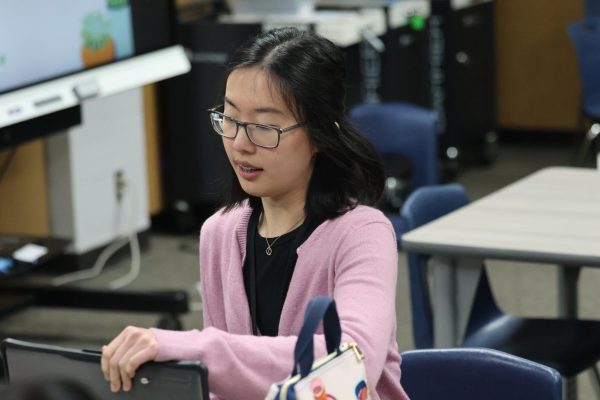
McMartin, who was on hallway duty at the time, said she was impressed by Wei’s thorough questions.
“She was interviewing me as we fast-pace walked around the school, so I’m actually amazed that she got as many answers as she did, because it was very busy,” McMartin said. “She really captured how I feel about teaching, because even though I went through a hard time, I’m here and the students really helped me keep going and carry on. She did a really good job.”
From the very start, Wei stood out as a very intelligent and thoughtful student to McMartin which never changed. Later, though, as McMartin read more of Wei’s articles, she began characterizing Wei as more of an old soul.
“I want her to know that I really loved having her as a student,” McMartin said. “I am super excited to see what she will do in life, and I hope I’ll see her name in headlines someday.”
Another teacher that Wei interviewed — this time for the full-length feature story, “Golden Threads in a Tapestry of Language” — was Chinese teacher Chyn Hsu Jing. Learning foreign languages has always been an interest of Wei’s, and in high school alone, she’s taken three years of Spanish and two years of Chinese. Wei’s interview with Jing was done entirely in Chinese and later translated to English.
“It’s very easy [teaching her],” Jing said. “I try to challenge her, because her Chinese is very good. She’s a hard worker, so she can challenge herself as well. I’m very thankful to have her as my student, because I can tell how she appreciates my efforts.”
During presentations, Jing always hopes that Wei will be the first.
“I use the popsicle stick to draw, but I want her to be the first one, because she can be my role model to show everybody,” Jing said. “She amazed me every single time. She puts her efforts to show me she really learned something on her own, not just for [her] to try to get the work done.”
Jing mentioned that she often asks Wei for feedback on her teaching, which is something she rarely requests from her other students.
“I want to encourage her to continue learning Chinese, because she already has the foundation,” Jing said. “She can do a lot more than what she has now.”
English teacher Glenys McMennamy, who has taught Wei for two consecutive years in AP Language and AP Literature, said that while her initial impression was that Wei was a compliant listener, as soon as she first read Wei’s work, she immediately found that Wei was different from the rest of her students.
“Even with new tasks that were unfamiliar for her, her writing was already mature and really thorough,” McMennamy said. “Whereas other students were still trying to figure out structures and understanding a text that they’re responding to, Karen’s work is already exemplary.”
Of all the students she taught, including past years McMennamy said that Wei falls in the top 1% — for not only does Wei excel in writing, she also is an exceptional thinker and student.
“She has skill goals for herself, so when she’s working on something for English class, and I would guess for other classes too, her pursuit of personal excellence is really what drives her,” McMennamy said. “Even if she’s getting a hundred on a writing task, which is frequent for her, she would have questions about little moments where she felt, ‘I didn’t think this was quite as clear as it could be, could you give me some feedback about this?’”
McMennamy said that while most people pursuing personal excellence use it as a buzzword phrase, it is “completely genuine” for Wei.
“As a teacher, it’s rare that you find a student who already meets expectations when you give them an initial task, but also, it’s important for students to grow from wherever they begin,” McMennamy said. “That has challenged me as a teacher and has endeared Karen to me in that she’s really graceful about me looking for ways to help her.”
The most notable challenge Wei had set for herself throughout AP Language was to incorporate an environmental aspect, her personal interest, into each and every essay.
“It takes a really curious person to connect all of the pieces,” McMennamy said. “It’s not the first or obvious kind of thing, but she really worked to do that on every essay we wrote as a personal challenge to herself. I’ve never seen a student do anything like that before, let alone do so successfully.”
On top of being an outstanding student, McMennamy said she has been inspired by Wei’s unswayable sense of priorities, rare even in adults.
“I asked her last year and again this year if she would participate in UIL writing,” McMennamy said. “Even though she rejected that offer, I’m inspired by her because the reason for it has been to maintain the balance she has in her life. That’s a really difficult line to hold for anybody, especially in a world where students and adults are looking for opportunities to shine.”
Wei has a personal bar that she holds herself up to which is something that may serve as a motivating factor for those who meet her.
“Students who have been in a class with her for any amount of time and have heard her musings and her participation immediately know that she is a deep thinker,” McMennamy said. “To some degree, her contributions to class mean that everybody else has to think more thoroughly and produce better work, because essentially if she’s one of the first people to participate, then that becomes a model for other students to [be] on par. It is intimidating sometimes, but for students who are just as capable, it forces them to think, ‘Okay, I can do this.’”
The countless lives Wei has touched and changed for the better during her journey in high school serve as a powerful testament to her unwavering work ethic and remarkable character.
“I hope that Karen, in whatever roles she ends up being in, sees for herself that she is a role model,” McMennamy said. “I don’t know that she always sees that about herself, because even though she’s an excellent person, I think she’s very humble. I would just like to remind her that even if she feels worried, it doesn’t show because she has this calm, cool, collected exterior. Because of her excellence, people are watching her all the time, not in a scary way, but in a way to say that she’s edifying the people she’s around all the time. Even if they don’t tell her that, she always is.”



